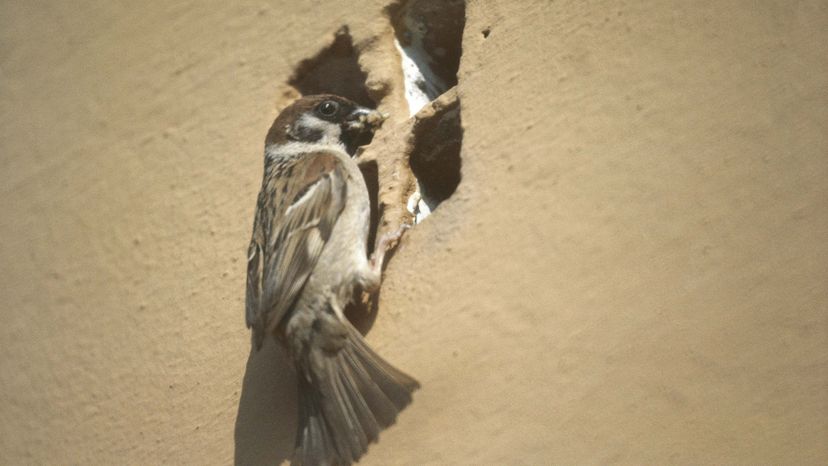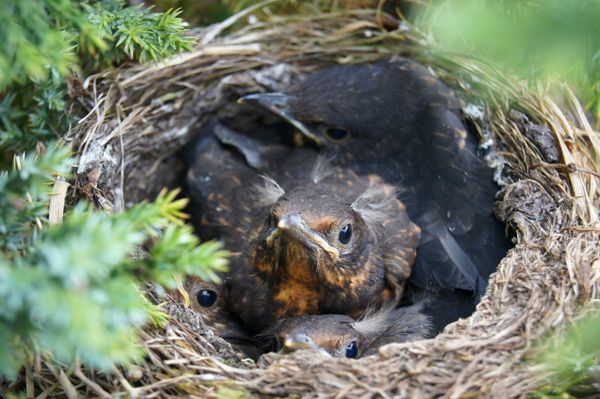
The house sparrows and finches of Mexico City are proud to be called bird brains. And why not? They have figured out how to use one of the most disgusting things on Earth – cigarette butts – to repel two of the other most disgusting things on Earth – ticks and mites. These blood-sucking, feather-feasting ectoparasites are a constant and pervasive threat to the nests of mama birds.
Country birds have easy access to nature's bountiful nest-making materials, including certain insect-repelling herbs and plants. City-dwelling birds, on the other hand, face a concrete and steel urban landscape, and must curate their nests from a more anthropogenic, or man-made, palette.
Advertisement
Enter cigarette butts.
A Dec. 5, 2012 study published in Biology Letters details the ongoing investigation of an urban population of breeding house finches and house sparrows at the National University of Mexico in Mexico City. The authors found that both species interweaved anywhere from a few to a few-dozen smoked cigarette butts into their twiggy, eclectic domiciles. In fact, the study concluded, the more butts, the healthier the nest.
If you just gasped, exhale already. Mama bird knows best.
Nicotine is an insecticide generated by the tobacco plant to ward off invasive leaf-eating arthropods like beetles. Some residual nicotine remains in the fibers of the cigarette butts that mama birds use to line and insulate their nests. It turns out that this nicotine-tinged filter fluff has "medicinal" and pesticidal properties that repel ticks in particular, protecting Mama's chicks from a potentially lethal fate. Overall, the study concludes that the more butt fiber there is in the nest, the fewer ticks and mites, revealing persuasive evidence that parasites don't like cigarette butts, and that nests built with cigarette butts attract fewer parasites.
But, uh, wait: There is no avian surgeon general, so who decides whether this seemingly beneficial ciggie habit harms the birds or is a savvy and resourceful example of urban wildlife adaptation? Researchers confirm that there is some genetic damage linked to the activity, but believe that the positive, life-saving, anti-parasitic effects far outweigh any long-term negative consequences.
Yay! You've come a long way, birdies.
Advertisement

